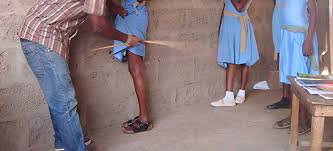
GES, the Law and the Ban on Corporal Punishment
The Ghana Education Service (GES) in 2017 officially banned all forms of corporal punishment of children in schools in Ghana as part of efforts aimed at promoting a safe and protective learning environment for children.[1]The GES directed in January 2019 that a Positive Discipline Toolkit which gives alternatives to corporal punishments be adopted by all teachers. The Director of Guidance and Counselling Unit of the GES, Ivy Kumi on Citi TV’s “The Point of View”[2]urged parents to take on teachers who cane their children as same amounts to an assault on the children.
Interestingly, section 31(i) of The Criminal Offences Act, 1960 (Act 29) provides that force or harm may be justified on the grounds of an authority to correct a child, servant, or
Placing a ban on corporal punishments without a legislative amendment of Act 29 may not have the effective force of law needed to enforce the ban. This is because going by the hierarchy of norms,
If the Service after its research considers a ban on corporal punishments a good education policy, a legislative amendment should follow to strip corporal punishments of any remaining legality.[5]
[1]Ghana Education Service letter dated 10thJanuary, 2019 with reference number GES/G&C-HQ/C/VOL.3 to all Regional Directors of education, signed by the Deputy Director-General (MS) for the Director-General.
[2]31stJanuary 2019; https://citinewsroom.com/2019/01/31/parents-can-deal-with-abusive-teachers-who-beat-their-kids-ges/
[3]At best, this directive if adopted by the Ministry of Education may be considered an administrative instrument.
[4]Section 32 of Act 29 provides the general limits of justifiable force or harm and adds that it must not extend beyond the amount and kind of force reasonably necessary for the purpose for which force is permitted to be used.
[5]Section 3 of the Ghana Education Service Act, 1995 (Act 506) on functions of the Service provides that it is the duty of the Service to submit to the Minister recommendations for educational policies and programmes.


I really like this publication. I think the idea of creating a conducive and protective learning environment for the child to learn especially in the SHS level is great but a ban on corporal punishment makes the child go wayward. Minimal force to make the child conform with school regulations may include some form of corporal punishment. taking that away from a schools’ administration makes students hold school authorities hostage.
Most students lack the willingness/enthusiasm to learn and such students will not conform to school regulations since there is no deterrent punishment. This is likely to mislead other students. The girl child is not deterred from getting impregnated and the worse of it is that they are allowed to stay in school with their pregnancy, be delivered of the child and leaves school and comes back in six months’ time leaving the child with a parent. since she did learn from her mistakes she comes back and may repeat the same thing. no real deterrent punishment for these students. its a mess in my humble opinion
I really like this publication. I think the idea of creating a conducive and protective learning environment for the child to learn especially in the SHS level is great but a ban on corporal punishment makes the child go wayward. Minimal force to make the child conform with school regulations may include some form of corporal punishment. taking that away from a schools’ administration makes students hold school authorities hostage.
Most students lack the willingness/enthusiasm to learn and such students will not conform to school regulations since there is no deterrent punishment. This is likely to mislead other students. The girl child is not deterred from getting impregnated and the worse of it is that they are allowed to stay in school with their pregnancy, be delivered of the child and leaves school and comes back in six months’ time leaving the child with a parent. since she did not learn from her mistakes she comes back and may repeat the same thing. no real deterrent punishment for these students. its a mess in my humble opinion